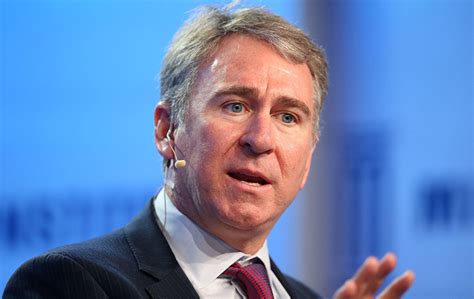
Shaquille O’Neal credits his father, Phillip Harrison, with instilling a strong work ethic and a sense of perspective, recounting a pivotal childhood experience where Harrison exposed him to the realities of homelessness to combat a growing sense of entitlement.
Former NBA superstar Shaquille O’Neal has frequently spoken about the profound impact his parents had on shaping his values and career. While his stepfather, Sergeant Phillip Harrison, played a central role in his discipline and basketball development, it was Harrison’s hands-on lesson about humility and the harsh realities of life that O’Neal credits with grounding him and preventing him from becoming a spoiled athlete. Harrison, a no-nonsense military man, recognized early on that O’Neal’s burgeoning basketball talent could lead to an inflated ego and a detachment from the struggles of ordinary people. To counteract this, he orchestrated a powerful and unforgettable lesson.
According to O’Neal, as reported by Yahoo Finance, Harrison once drove him to a homeless encampment to illustrate that success and privilege should not lead to arrogance or a disconnect from those less fortunate. “My father was a drill sergeant, and he was all about tough love,” O’Neal stated. “One day, he pulled up to a homeless neighborhood, and he said, ‘This is where you’re going to be if you don’t listen.'” This experience served as a stark wake-up call for the young O’Neal, who was beginning to bask in the attention and accolades that came with his growing basketball prowess.
The impact of this experience was profound. O’Neal internalized the lesson, understanding that his talent was a gift that came with responsibility. He frequently mentions this event when discussing his career and philanthropic endeavors, emphasizing the importance of staying humble and giving back to the community. The experience was instrumental in shaping his understanding of hard work, discipline, and empathy – values that would guide him throughout his illustrious basketball career and beyond. It instilled in him a deep appreciation for his opportunities and a commitment to using his platform for good.
The anecdote also provides insight into the challenges faced by young athletes who achieve fame and fortune early in life. The pressures of instant success, combined with the constant attention and adulation, can create a sense of entitlement and disconnect from reality. O’Neal’s experience highlights the critical role that parents and mentors play in guiding young athletes, instilling in them the values of humility, hard work, and social responsibility. Harrison’s approach, though unconventional, proved to be remarkably effective in keeping O’Neal grounded and focused on what truly mattered.
O’Neal’s story serves as a cautionary tale and a source of inspiration for athletes and parents alike. It underscores the importance of instilling strong values early in life, particularly when faced with the temptations of fame and fortune. It also demonstrates the power of experiential learning, where real-world experiences can have a far greater impact than words alone. The lesson O’Neal learned from his father continues to resonate throughout his life, shaping his actions and inspiring others to give back to their communities.
Beyond the personal impact on O’Neal, this story also raises broader questions about the responsibility of athletes and celebrities to use their platforms for social good. With their immense influence and reach, athletes have the potential to make a significant difference in the lives of others. O’Neal’s commitment to philanthropy and community involvement is a testament to the positive impact that athletes can have when they embrace their social responsibility. He has been involved in numerous charitable initiatives throughout his career, focusing on issues such as education, poverty, and youth development.
The lesson imparted by O’Neal’s father is not just for athletes; it is a valuable reminder for anyone who achieves success. It serves as a call to remain grounded, to appreciate the opportunities one has been given, and to remember those who are less fortunate. The story reinforces the timeless values of humility, hard work, and empathy, which are essential for building a better world.
The significance of Harrison’s lesson lies in its ability to counteract the potential pitfalls of fame and fortune. Many young athletes, thrust into the spotlight at a young age, struggle to navigate the pressures of success and maintain a sense of perspective. The constant attention, lavish lifestyles, and entourage of enablers can create a bubble of isolation and entitlement, making it difficult to relate to the everyday struggles of ordinary people.
Harrison recognized this potential early on and took decisive action to prevent O’Neal from falling into this trap. By exposing him to the realities of homelessness, he shattered the illusion of invincibility and forced him to confront the stark contrast between his privileged position and the hardships faced by others. This experience instilled in O’Neal a sense of gratitude and a deep understanding of the importance of giving back.
Moreover, Harrison’s approach highlights the importance of proactive parenting. He did not simply lecture O’Neal about the dangers of arrogance and entitlement; he created a visceral experience that would leave a lasting impression. This hands-on approach, combined with his consistent message of hard work and discipline, proved to be highly effective in shaping O’Neal’s character and values.
The story also underscores the role of mentorship in the lives of young athletes. O’Neal has often spoken about the importance of having positive role models and mentors who can guide them through the challenges of fame and fortune. Harrison served as a powerful mentor, not only in basketball but also in life, providing O’Neal with the tools he needed to navigate the complexities of success and maintain a strong moral compass.
In conclusion, Shaquille O’Neal’s story is a testament to the power of parental guidance and the importance of instilling strong values in young athletes. His father’s unconventional lesson about homelessness served as a wake-up call, grounding him in reality and shaping him into the humble, hardworking, and philanthropic individual he is today. The story serves as a valuable reminder for athletes, parents, and anyone who achieves success: stay grounded, appreciate your opportunities, and give back to your community.
In-Depth Analysis and Expanded Context:
Shaquille O’Neal’s journey from a promising young basketball player to a global icon is a story of talent, hard work, and strong parental guidance. While his on-court achievements are well-documented, the influence of his father, Phillip Harrison, on shaping his character and values is often overlooked. Harrison’s role extended far beyond simply coaching O’Neal in basketball; he was a mentor, a disciplinarian, and a moral compass who instilled in him the principles that would guide him throughout his life.
Harrison’s military background played a significant role in his parenting style. He was a drill sergeant in the U.S. Army, and he brought the same level of discipline, structure, and accountability to his role as a father. He believed in hard work, respect for authority, and the importance of giving back to the community. These values were instilled in O’Neal from a young age, and they became the foundation of his success both on and off the court.
The story of Harrison taking O’Neal to a homeless encampment is a powerful example of his approach to parenting. It was a deliberate and calculated effort to counteract the potential pitfalls of fame and fortune. Harrison recognized that O’Neal’s growing basketball talent could lead to arrogance and entitlement, and he wanted to prevent him from becoming a spoiled athlete.
The experience of visiting the homeless encampment had a profound impact on O’Neal. It forced him to confront the stark realities of poverty and inequality. He saw firsthand the struggles of people who were less fortunate, and it instilled in him a sense of gratitude for the opportunities he had been given. It also motivated him to use his platform to help others.
O’Neal has often spoken about the importance of this experience in shaping his values. He credits it with teaching him humility, empathy, and the importance of giving back to the community. He has been involved in numerous charitable initiatives throughout his career, focusing on issues such as education, poverty, and youth development.
The lesson that Harrison imparted to O’Neal is not just for athletes; it is a valuable reminder for anyone who achieves success. It serves as a call to remain grounded, to appreciate the opportunities one has been given, and to remember those who are less fortunate. The story reinforces the timeless values of humility, hard work, and empathy, which are essential for building a better world.
Furthermore, O’Neal’s story highlights the importance of proactive parenting. Harrison did not simply lecture O’Neal about the dangers of arrogance and entitlement; he created a visceral experience that would leave a lasting impression. This hands-on approach, combined with his consistent message of hard work and discipline, proved to be highly effective in shaping O’Neal’s character and values.
Many young athletes, thrust into the spotlight at a young age, struggle to navigate the pressures of success and maintain a sense of perspective. The constant attention, lavish lifestyles, and entourage of enablers can create a bubble of isolation and entitlement, making it difficult to relate to the everyday struggles of ordinary people.
Harrison recognized this potential early on and took decisive action to prevent O’Neal from falling into this trap. By exposing him to the realities of homelessness, he shattered the illusion of invincibility and forced him to confront the stark contrast between his privileged position and the hardships faced by others.
The story also underscores the role of mentorship in the lives of young athletes. O’Neal has often spoken about the importance of having positive role models and mentors who can guide them through the challenges of fame and fortune. Harrison served as a powerful mentor, not only in basketball but also in life, providing O’Neal with the tools he needed to navigate the complexities of success and maintain a strong moral compass.
The challenges faced by young athletes who achieve fame and fortune early in life are significant. They are often surrounded by people who are more interested in their money and fame than in their well-being. They may lack the life skills and emotional maturity to handle the pressures of success. They may also be exposed to negative influences such as drugs, alcohol, and gambling.
Parents and mentors play a crucial role in helping young athletes navigate these challenges. They can provide guidance, support, and accountability. They can also help them develop the life skills and emotional maturity they need to cope with the pressures of success.
O’Neal’s story is a testament to the power of parental guidance and the importance of instilling strong values in young athletes. His father’s unconventional lesson about homelessness served as a wake-up call, grounding him in reality and shaping him into the humble, hardworking, and philanthropic individual he is today.
The story serves as a valuable reminder for athletes, parents, and anyone who achieves success: stay grounded, appreciate your opportunities, and give back to your community. It is a story about the importance of humility, empathy, and social responsibility. It is a story about the power of parental guidance and the importance of instilling strong values in young people.
In addition to the impact on O’Neal himself, the story also highlights the responsibility of athletes and celebrities to use their platforms for social good. With their immense influence and reach, athletes have the potential to make a significant difference in the lives of others.
O’Neal’s commitment to philanthropy and community involvement is a testament to the positive impact that athletes can have when they embrace their social responsibility. He has been involved in numerous charitable initiatives throughout his career, focusing on issues such as education, poverty, and youth development.
He has also used his platform to speak out on important social issues, such as racial justice and police brutality. He has been a vocal advocate for change, and he has inspired others to get involved in their communities.
The story of O’Neal and his father is a reminder that success is not just about achieving personal goals; it is also about using one’s talents and resources to make a positive impact on the world. It is a story about the importance of giving back and helping those who are less fortunate. It is a story about the power of compassion and empathy.
In conclusion, Shaquille O’Neal’s story is a powerful example of the importance of parental guidance, strong values, and social responsibility. His father’s unconventional lesson about homelessness served as a wake-up call, grounding him in reality and shaping him into the humble, hardworking, and philanthropic individual he is today.
The story serves as a valuable reminder for athletes, parents, and anyone who achieves success: stay grounded, appreciate your opportunities, and give back to your community. It is a story about the importance of humility, empathy, and social responsibility. It is a story about the power of parental guidance and the importance of instilling strong values in young people. It is a story that should inspire us all to strive to be better people and to make a positive impact on the world.
The Broader Context of Athlete Responsibility:
Shaquille O’Neal’s experience sheds light on a broader societal discussion regarding the responsibilities of athletes and celebrities. Their elevated status and significant earning power come with an implicit expectation to contribute positively to society. This expectation stems from their role model status, particularly for young people, and their ability to influence public opinion and drive social change.
Many athletes have embraced this responsibility, using their platforms to advocate for various causes, raise awareness about important issues, and provide financial support to those in need. LeBron James, for instance, has been a vocal advocate for education reform and has established the I Promise School in his hometown of Akron, Ohio, to provide educational opportunities for at-risk youth. Colin Kaepernick’s kneeling protest during the national anthem sparked a national conversation about racial injustice and police brutality. Serena Williams has been a champion for gender equality and has used her platform to empower women and girls around the world.
However, not all athletes embrace this responsibility, and some have faced criticism for their lack of engagement in social issues. Some argue that athletes should focus solely on their sport and avoid expressing opinions on controversial topics. Others believe that athletes have a moral obligation to use their platforms to speak out against injustice and advocate for positive change.
The debate over athlete responsibility is complex and multifaceted. There is no easy answer, and each athlete must decide for themselves how they want to use their platform. However, O’Neal’s story provides a compelling argument for the importance of athletes using their influence to make a positive impact on the world. His father’s lesson about homelessness instilled in him a sense of empathy and a commitment to giving back to the community. This commitment has guided him throughout his career and has made him a role model for countless people around the world.
The Psychological Impact of Early Fame and Fortune:
The rapid ascent to fame and fortune can have a profound psychological impact on young athletes. The sudden influx of wealth, attention, and adulation can be overwhelming, leading to feelings of isolation, anxiety, and depression.
Many young athletes struggle to adapt to their newfound status and maintain a sense of perspective. They may be surrounded by people who are more interested in their money and fame than in their well-being. They may lack the life skills and emotional maturity to handle the pressures of success. They may also be exposed to negative influences such as drugs, alcohol, and gambling.
The psychological challenges faced by young athletes are often exacerbated by the intense scrutiny they face from the media and the public. Every aspect of their lives is scrutinized, and they are often held to unrealistic standards. This constant pressure can take a toll on their mental health and well-being.
Parents and mentors play a crucial role in helping young athletes navigate these psychological challenges. They can provide guidance, support, and accountability. They can also help them develop the life skills and emotional maturity they need to cope with the pressures of success.
O’Neal’s story highlights the importance of having a strong support system. His father’s guidance and discipline helped him stay grounded and maintain a sense of perspective. He also had a close-knit group of friends and family who provided him with emotional support.
The psychological impact of early fame and fortune is a complex issue, and there is no one-size-fits-all solution. However, by providing young athletes with the support they need, we can help them navigate the challenges of success and maintain their mental health and well-being.
The Role of Experiential Learning:
Phillip Harrison’s decision to take Shaquille O’Neal to a homeless encampment underscores the power of experiential learning. Experiential learning, also known as “learning by doing,” is a pedagogical approach that emphasizes hands-on activities and real-world experiences as a means of acquiring knowledge, skills, and values.
Traditional education often relies on lectures, textbooks, and rote memorization. While these methods can be effective in conveying information, they often fail to engage students on a deeper level or connect learning to real-world contexts. Experiential learning, on the other hand, provides students with opportunities to apply their knowledge and skills in authentic settings, fostering a deeper understanding and a greater sense of ownership over their learning.
In O’Neal’s case, Harrison could have simply lectured him about the importance of humility and the dangers of entitlement. However, he recognized that such a lecture would likely have little impact on a young man who was beginning to bask in the attention and accolades that came with his growing basketball prowess. Instead, he chose to create a visceral experience that would leave a lasting impression.
By taking O’Neal to a homeless encampment, Harrison forced him to confront the stark realities of poverty and inequality. He saw firsthand the struggles of people who were less fortunate, and it instilled in him a sense of gratitude for the opportunities he had been given. This experience had a far greater impact than any lecture could have.
Experiential learning is particularly valuable in developing social and emotional skills such as empathy, compassion, and problem-solving. By engaging in real-world activities, students learn to understand different perspectives, collaborate with others, and overcome challenges.
In addition to the visit to the homeless encampment, O’Neal’s experience growing up in a military family also provided him with numerous opportunities for experiential learning. He learned about discipline, teamwork, and leadership through his participation in sports and other activities. He also learned about the importance of service and giving back to the community through his family’s involvement in various charitable initiatives.
The use of experiential learning is becoming increasingly popular in education and training. Educators and employers are recognizing that hands-on activities and real-world experiences are essential for developing the skills and knowledge that are needed to succeed in the 21st century.
O’Neal’s story serves as a powerful example of the effectiveness of experiential learning. His father’s decision to take him to a homeless encampment had a profound impact on his life, shaping his values and inspiring him to give back to the community. It is a reminder that the most effective learning often comes from doing, not just from hearing.
FAQ Section:
1. What specific lesson did Shaq’s father, Phillip Harrison, try to teach him about homelessness?
Phillip Harrison aimed to instill humility and prevent entitlement in his son, Shaquille O’Neal, by exposing him to the realities of homelessness. He wanted Shaq to understand that success and privilege should not lead to arrogance or a disconnect from those less fortunate, emphasizing hard work and gratitude.
2. How did Phillip Harrison, Shaq’s father, expose him to the realities of homelessness?
Harrison drove Shaq to a homeless encampment. According to Shaq, Harrison’s message was: “This is where you’re going to be if you don’t listen.” This direct exposure aimed to show Shaq the potential consequences of not working hard and remaining disciplined.
3. What impact did this experience have on Shaquille O’Neal?
The experience had a profound impact on O’Neal, instilling in him a sense of gratitude and motivating him to use his platform to help others. It reinforced the importance of humility, empathy, and giving back to the community, influencing his philanthropic endeavors and overall outlook on life.
4. Why is this particular lesson from Shaq’s father relevant to other athletes and individuals who achieve fame and fortune?
The lesson highlights the potential pitfalls of early fame and fortune, which can lead to entitlement, isolation, and a disconnect from the struggles of ordinary people. It underscores the importance of strong parental guidance and mentorship in instilling values that promote social responsibility and humility.
5. Besides the homelessness lesson, what other values did Phillip Harrison instill in Shaquille O’Neal?
Harrison, a drill sergeant in the U.S. Army, instilled values such as discipline, respect for authority, and the importance of giving back to the community. These values, combined with the lesson on homelessness, shaped O’Neal’s character and guided him throughout his successful career.









